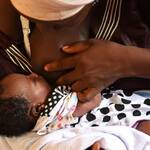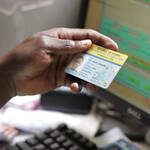A total of 118 health projects have been undertaken in the Northern Region the Akufo-Addo government assumed office in 2017.
82 completed and in use
Out of this, 82 of the health projects representing 72% of have been completed and in use.
District breakdown
Gushegu -8, Karaga-7, Kpandai-8, Kumbugu-7, Mion-4, Nanton-11, Nanumba North-14, Nanumba South-7, Saboba-4, Sagnarigu-4, Savelugu-11, Tamale Metro-4, Tatale Sangulu-2, Tolon-11, Yendi-8 and Zabzugu-4
Northern Regional Minister, Alhaji Shani Alhassan Saibu announced this at Minister’s Press Briefing
Metropolitan, Municipal and District Assemblies (MMDAs) in the Region, through different sources of funding, executed a great number of projects in the health sector.
Categorisation of the projects
The projects range from the constructions of CHPS compounds, health centres and clinics, administration blocks for district health directorates and health institutions, maternity wards, accommodation for health workers as well as the supply of logistics to health facilities.
Impact of the projects
Alhaji Saibu explained that when completed the projects are expected to significantly deepen delivery of quality healthcare at the district level, improve access to healthcare services for all citizens towards ensuring the attainment of the United Nations’ Sustainable Development Goal Three (Good Health and Wellbeing
8 Agenda 111 projects progressing
In addition, he said eight of the 16 MMDAs in the Region are benefitting from the Agenda 111 projects and the region will also benefit from a Psychiatric hospital.
Districts benefiting from Agenda 111
The MMDAs are Sagnarigu, Savelugu, Nanton, Saboba, Mion, Kpandai, Nanumba South and Kumbungu while the Psychiatric hospital will be located in the Tamale Metropolis.
Alhaji Saibu stated that work on all eight Agenda 111 projects are progressing steadily and when completed, the access to good health facilities and wellbeing of our people would be very much improved.
He noted that these projects when completed are expected to significantly deepen delivery of quality healthcare at the district level, improve access to healthcare services for all citizens towards ensuring the attainment of the United Nations’ Sustainable Development Goal Three of Good Health and Wellbeing.
Some critical health indicators
Aside of the very impressive achievements in infrastructure in the health sector, Alhaji Saibu said the region also has a good story to tell when it comes to some critical health indicators.
Poor access to good health facilities
According to him, the stuck reality is that access to good health facilities in the region has been very poor to say the least.
0.5% OPD per capita
For example, he said the current Out Patient Department (OPD) per capita in the Region is 0.5%, which is far below the national target of one percent.
He explained that these indicators impact on the Human Development Index and the achievement of the Sustainable Development Goals.
337 health facilities existing health facilities
Currently, Alhaji Saibu said 337 health facilities comprising 279 government institutions, 45 private owned, seven mission and faith based as well as six quasi-government owned exist in the region.
Facility By type
By facility type, it is made up of one teaching hospital, 18 hospitals, two polyclinics, 66 health centres, and 205 CHPS zones.
7, 693 health staff
The total number of health staff in the region rose from 4, 967 in 2018 to 7, 693 in 2021.
1:10,901 doctor to population ratio
The doctor to population ratio also improved from 1: 21,692 in 20188 to 1:10,901 last year.
1:369 Nurse to population ratio
Nurse to population ratio also made some gains from 1: 529 in 2018 to 1:369 in 2021.
1:533 Midwife to women in fertile age ratio
For Midwife to women in fertile age ratio it also improved from 1:840 in 2018 to 1:533 last year.
Neo-Natal Deaths decline
The Number of deaths during the first 28 completed days per 1,000 live births declined from 10.5 in 2018, to 9.2 in 2021.
Maternal mortality rate
Maternal mortality rate (maternal deaths for 100,000 live births also rose from 35: 100,000 live births in 2018 to 45: 100,000 live births in 2019, 2020 and 2021 and is currently at 34: 100,000 live births
Half year postnatal care within 48 hours
There has been a significant increase in postnatal care within 48 hours which was 55.7 in 2018 and increased to 84.4 in 2022
Half year Malaria deaths
The number of Malaria deaths, half year dropped from 117 in 2016 to 14 this year.
Alhaji Saibu stated that over the past five and a half years, under the able leadership of Nana Addo Dankwa Akufo-Addo, the Northern Region witnessed remarkable accomplishments in physical infrastructure and human resource development which have definitely improved the lives of the people thereby cementing the vision the President.
According to him, there are clear and tangible results in the Education, Health, Agriculture and Road Sectors, as well as, real improvement in other Social Services such as the provision of potable water and electricity supply to benefit majority of towns and communities, enhanced logistics to our security services, along with the numerous government flagship programmes in the region.
- 2023 Road crashes: 1,086 killed in first 6 months - 21 July 2023
- Compressed earth bricks manufacturers for Agenda 111 cry foul - 19 July 2023
- 17 defunct entities owned by government to be sold - 12 July 2023




